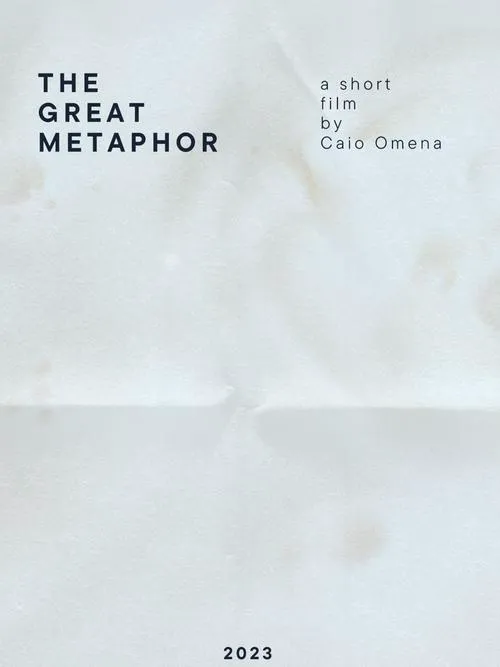The Great Metaphor

Enredo
In a poignant and introspective drama, The Great Metaphor grapples with the complexities of existence, mortality, and the power of creative expression. The film follows the story of Emrys, a celebrated poet in his 50s who has lost all sense of purpose and joy. After a string of personal failures, professional setbacks, and the loss of loved ones, Emrys finds himself drowning in debt and struggling to write anything meaningful. His inner turmoil manifests in his creative work, which has become stale and insipid. The once-vibrant words that flowed effortlessly from his pen now seem hollow and devoid of passion. Feeling like he has nothing left to offer the world, Emrys becomes increasingly detached from reality, and his grip on life begins to slip. His relationships with friends and family suffer, and even his most devoted fans start to lose interest in his work. One day, Emrys receives a letter from a mysterious admirer who has been following his career closely. The letter, which is more of a poetic monologue than a straightforward message, challenges Emrys to reexamine his purpose and redefine what it means to be a poet. The writer argues that a poet's primary function is not to write about grand themes or to produce bestselling works, but to distill the essence of existence into a small, perfect sentence. Intrigued by the letter, Emrys embarks on a journey of self-discovery, seeking to reconnect with the creative spark that once fueled his art. He withdraws from the world and takes up residence in a small, rural cottage, surrounded by the natural beauty and quiet isolation that he feels will help him tap into his inner world. The solitude becomes a catalyst for introspection, and Emrys's thoughts begin to flow more freely as he grapples with existential questions about life, death, and the meaning of it all. As he delves deeper into the mysteries of existence, Emrys starts to see the world in new light, and his writing begins to stir once more. His words, once again, convey a sense of wonder, sorrow, and awe, as if the veil of his indifference has been lifted, and he has been reborn. His poetry becomes a testament to the human experience – all its pain, joy, love, and loss – and the ways in which art can transcend the mundane and capture the essence of life. However, Emrys's newfound creative fervor comes at a price. His withdrawal from the world and his obsession with the mysterious letter writer begin to strain his relationships with others. Friends and family struggle to connect with him, as he becomes increasingly reclusive and detached. Emrys's isolation becomes a metaphor for the very themes he is trying to explore – the fragility of life, the impossibility of fully grasping its meaning, and the delicate balance between existence and non-existence. In the midst of this introspection, Emrys becomes convinced that the mysterious letter writer is, in fact, the embodiment of his own creative spirit. The writer, Emrys believes, is the part of him that has been hiding in the shadows, waiting for him to tap into its wisdom and let his art flourish once more. The two engage in a series of symbolic exchanges, each challenging the other to confront the very nature of existence. As Emrys continues to probe the depths of his own being, the boundaries between reality and metaphor begin to blur. The audience is left questioning what is real and what is a product of Emrys's fevered imagination. In this sense, The Great Metaphor becomes a thought-provoking exploration of the human condition, one that raises more questions than it answers. Emrys's odyssey takes him down a rabbit hole of philosophical conundrums, existential crises, and creative rebirth – a journey that ultimately culminates in a profound appreciation for the preciousness of life and the transformative power of art.
Resenhas
Recomendações



